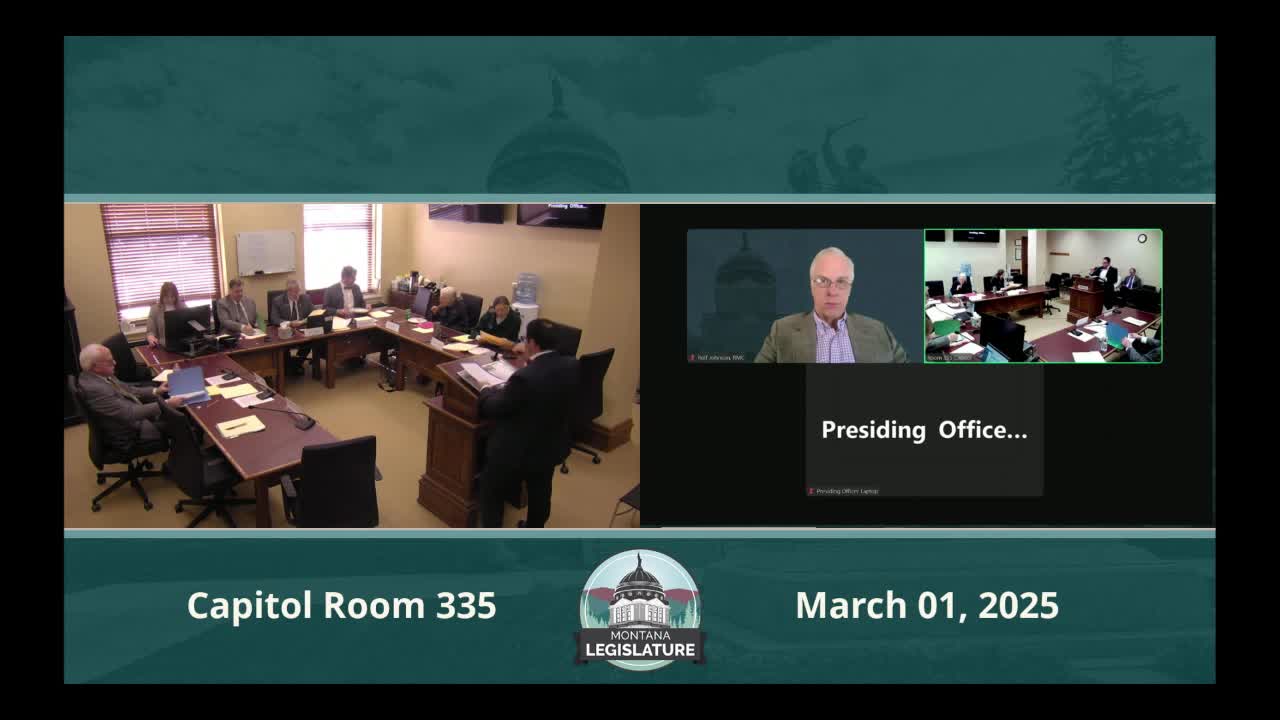Senate advances bill to restore optional tribal‑state relations training for legislators
Get AI-powered insights, summaries, and transcripts
Subscribe
Summary
Lawmakers heard hours of testimony on Senate Bill 311, which would direct Legislative Services to include optional tribal‑state relations training for legislators; proponents said it would reduce legal disputes and improve policymaking, while some senators urged narrowing the language to avoid perceived advocacy.
Senators heard extensive testimony on Senate Bill 311 on the measure that would add “state‑tribal relations” to the optional training Legislative Services may provide to legislators.
The bill’s sponsor, Senator Morgeau, said the change is simple and voluntary: it would require that legislative orientation materials include an option for training about Montana’s tribal nations, treaties and government‑to‑government relationships. “It’s just to build a really simple ensure this happens,” Morgeau said in his opening remarks, adding that attendance would be voluntary.
Supporters told the committee the training would give legislators baseline facts ahead of drafting and debate. Patrick Yawake, who testified on behalf of the Blackfeet Tribe, the Fort Belknap Indian Community and Rocky Boy, said SB 311 would provide “factual information pertaining to Montana tribal nations and our inherent sovereignty” and help avoid costly lawsuits. “Having this knowledge prior to debate would save on real taxpayer dollars that go to lawsuits that could have been prevented with the education,” Yawake said.
Legislative staff described how the program would be delivered. Joel Howe of the Legislative Services Division said his office already coordinates many orientation sessions and could make tribal relations training “readily available,” while continuing to invite outside experts when specialized legal or cultural expertise is required.
Several senators asked whether the proposed training could move beyond neutral, factual instruction into advocacy. Senator Emmerich warned that voluntary training can become de facto required and expressed concern about staff being asked to present “social, economic and cultural issues” in a way that could be seen as partisan. Senator Dunwell and others pressed proponents on how the training would reach both reservation and urban tribal members and on whether it would address statewide impacts of legislation. Senator Fuller and other supporters countered that the intent is informational not advocacy, and that existing handbooks and university Indian law resources would provide neutral content.
The sponsor repeatedly offered to narrow the bill if that would reassure colleagues, including removing contested subsections and leaving a single line in statute that training may include state‑tribal relations. Morgeau asked to hold the bill until Monday to consult with the Director of Indian Affairs and Legislative Services about implementation details.
The hearing record contains multiple suggestions for amendments — including dropping a subsection described as advocacy or limiting the statutory language to require only that legislative training may include tribal relations — but the committee did not take final action on the measure during this session.
Why it matters: proponents argued the training would reduce legal risk, improve lawmakers’ understanding of tribal governments in Montana and strengthen government‑to‑government relationships. Opponents cautioned that statutory language should not require staff to present material that could be perceived as advocacy and urged tighter drafting or removal of specific subsections.
Next steps: the sponsor asked to hold the bill temporarily to discuss language and operational details with the Director of Indian Affairs and Legislative Services.
